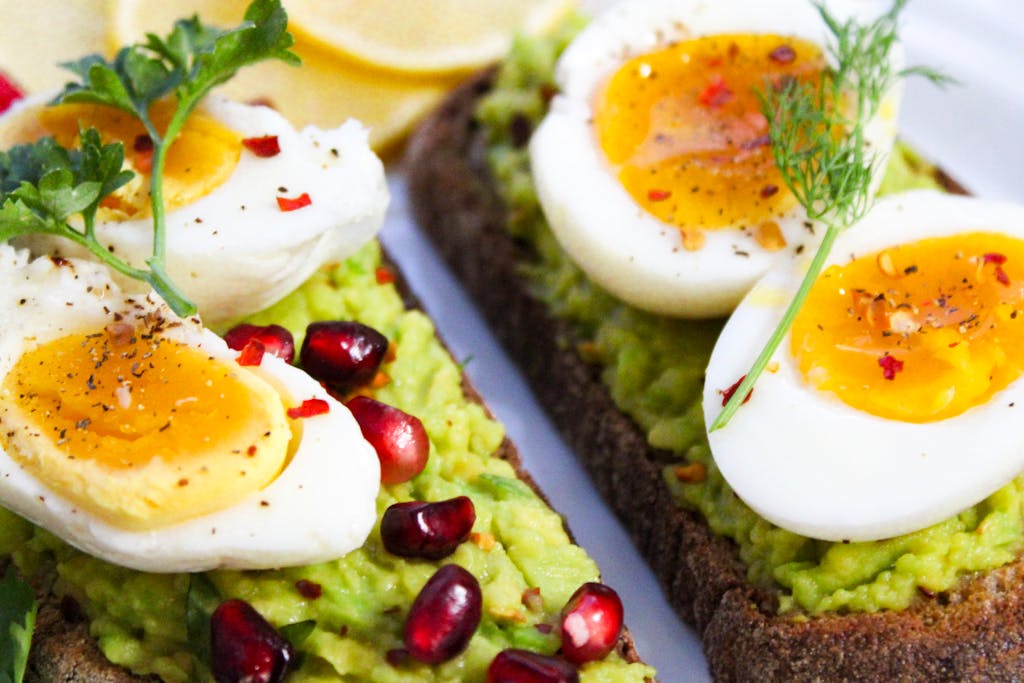Dealing with eczema can be frustrating, especially when flare-ups happen without warning. While medications and topical treatments can help, one of the most overlooked triggers for eczema is what’s on your plate. The connection between food and eczema is powerful, with certain ingredients known to ignite inflammatory responses in the body, causing skin irritation. By being mindful of what you eat, you can take a proactive step in managing this condition. Here’s a deeper dive into the worst foods for eczema, and why you should consider removing them from your diet for smoother, calmer skin.
1. Dairy Products: A Hidden Villain
For many eczema sufferers, dairy is a primary trigger. Whether it’s milk, cheese, butter, or yogurt, dairy contains proteins like casein and whey, which can set off an inflammatory cascade in the body, leading to flare-ups. Not to mention, dairy can also increase mucus production, which weakens the immune system’s ability to fight inflammation. If you’re dealing with persistent eczema, swapping out dairy for plant-based options like almond, oat, or coconut milk could be a game changer for your skin. Additionally, many who eliminate dairy notice clearer skin within weeks—a huge incentive!
2. Eggs: Tiny But Mighty Irritants
Though eggs are nutrient-packed, they are a notorious trigger for eczema. Egg whites, in particular, contain enzymes that can lead to heightened immune responses, exacerbating eczema symptoms. It’s not uncommon for children and adults alike to see improvements in their skin after cutting out eggs. But don’t worry—there are plenty of alternatives out there! Flax eggs, chia seeds, or even mashed bananas can work as fantastic substitutes in baking or cooking. Plus, cutting out eggs can also help reduce bloating and digestive discomfort, making this dietary swap even more worthwhile.
3. Gluten and Wheat: The Sneaky Saboteurs
Gluten is another food that can quietly wreak havoc on eczema-prone skin. Found in wheat, barley, and rye, gluten can be particularly troublesome for those with sensitivities. It’s thought that gluten triggers an inflammatory response in the gut, which directly impacts the skin’s health. Many who go gluten-free report fewer eczema flare-ups, clearer skin, and improved digestion. The best part? There’s no shortage of gluten-free options today—whether it’s quinoa, rice, or gluten-free bread—so saying goodbye to gluten doesn’t mean sacrificing delicious meals.
4. Soy Products: A Hidden Threat
Soy is a common ingredient in many processed foods, and while it may seem harmless, it can be a sneaky culprit in worsening eczema symptoms. Found in everything from soy sauce to tofu, soy contains phytoestrogens, which may disrupt hormone levels, potentially worsening inflammatory skin conditions. If soy is a staple in your diet, it’s worth experimenting with a soy-free lifestyle to see if your skin improves. Consider swapping soy products for alternatives like almond-based or coconut-based options, which are not only eczema-friendly but packed with nutrients.
5. Nuts: Nutritional Powerhouses with a Catch
Nuts are a nutrient-dense snack, but for some people, they’re a powerful eczema trigger. Almonds, peanuts, walnuts, and other nuts can cause allergic reactions in some, which may manifest as itchy, inflamed skin. If you notice that your eczema worsens after eating nuts, you might have a sensitivity. However, this doesn’t mean you have to give up your favorite crunchy snacks entirely! Try replacing them with seeds like sunflower, chia, or pumpkin seeds, which offer similar benefits without the risk of flare-ups.
6. Citrus Fruits: Healthy but Risky for Sensitive Skin
Citrus fruits like oranges, lemons, and grapefruits are packed with vitamin C, but they can also be problematic for people with eczema. The acidity in these fruits can irritate the skin, especially around the mouth, leading to increased sensitivity and flare-ups. Additionally, some people with eczema have oral allergy syndrome, where certain fruits can cause itching and swelling in the mouth. If citrus seems to worsen your eczema, consider switching to lower-acid fruits like apples, pears, or berries, which are equally nutritious but less likely to trigger skin reactions.
7. Tomatoes: The Acidic Agitator
Tomatoes, although rich in antioxidants and vitamins, are highly acidic, which can spell trouble for eczema sufferers. The high acidity in tomatoes can lead to skin irritation, causing itching and inflammation. Whether it’s raw tomatoes, tomato sauce, or even ketchup, these foods may be best avoided if you’re experiencing frequent eczema flare-ups. Thankfully, there are plenty of flavorful alternatives! Consider using roasted red peppers, pumpkin puree, or homemade pesto as substitutes for tomato-based sauces in your cooking.
8. Processed and Sugary Foods: Inflammation in Every Bite
The link between processed, sugary foods and inflammation is undeniable, and for those with eczema, this can be a huge problem. Foods high in sugar, artificial sweeteners, and unhealthy fats can spike insulin levels and increase inflammation throughout the body. In turn, this inflammation can wreak havoc on the skin, causing eczema flare-ups and making existing symptoms worse. Reducing sugar isn’t just good for your skin; it benefits your entire body. Switching to whole, unprocessed foods like fresh fruits, vegetables, whole grains, and lean proteins can significantly improve not only your eczema but your overall well-being.
Take Control of Your Eczema Through Your Diet
While eczema is a complex condition with many potential triggers, one of the most powerful tools you have is your diet. Eliminating or reducing your intake of these common eczema-triggering foods can make a world of difference in managing your symptoms. It’s important to remember that everyone’s eczema is unique, so it may take some time and experimentation to figure out exactly which foods are causing your flare-ups. Working with a healthcare professional or a nutritionist can help you identify these triggers and create a meal plan tailored to your skin’s needs.
By making these small but impactful dietary changes, you can take control of your eczema, reduce flare-ups, and enjoy healthier, happier skin.
Disclaimer
The information provided in this article is for educational purposes only and should not be considered medical advice. Always consult with a licensed healthcare provider or dermatologist before making any changes to your diet or eczema treatment plan. The suggestions made may not be suitable for everyone and should be customized to meet individual health needs.




